Raspberry Pi Pico W is a $6 wireless-enabled microcontroller for IoT projects
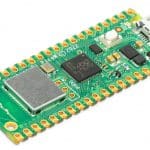
A year ago, the Raspberry Pi Foundation unveiled the Raspberry Pi Pico, a $4 microcontroller designed for physical computing projects. Easily programmed using MicroPython, it was designed for tasks like controlling lights, buttons, sensors, motors, and even other microcontrollers.
Today, after having sold nearly two million Pico boards, the Foundation announces the Raspberry Pi Pico W which adds 802.11n wireless networking to the platform.
Linux and Raspberry Pi machines become top targets for credential hacking

New research shows that hackers are regularly gaining access to servers with the same commonly used -- often default -- passwords.
The data from Bulletproof also reveals that default Raspberry Pi usernames and logins feature prominently on the list of top default credentials used by hackers.
Got a Raspberry Pi? Install Raspberry Pi OS (64-bit) on it now!
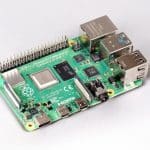
The Raspberry Pi Foundation has been working on a 64-bit build of its Raspberry Pi OS for a while now, and after a successful beta trial it's finally ready to make it available to anyone with a compatible Pi.
It has been possible to run a 64-bit build of the OS since Raspberry Pi 3 arrived in 2016, but the Foundation has stuck with the 32-bit platform in order to "maximise compatibility between devices and to avoid customer confusion".
Ubuntu-based Pop!_OS 21.10 Linux distribution from System76 is finally available for PC and Raspberry Pi
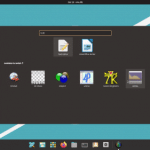
Ubuntu Linux 21.10 was released back in October, and since then, fans of the Pop!_OS operating system have been wondering when System76 would update to the new Ubuntu base. Well, folks, today is finally the day. Pop!_OS 21.10 is now available to download for your PC hardware. In a surprise move, the company also releases a preview of the OS for the ARM-based Raspberry Pi!
The most notable change in Pop!_OS 21.10 is the inclusion of a new Applications Library, as System76 tries to further distance itself from the vanilla GNOME desktop environment. The refreshed library displays windowed rather than full screen. It even has improved multi-monitor support, displaying the app library on whichever screen has the mouse cursor when summoned. You can see a video of it in action further down the page.
The new Raspberry Pi Zero 2 W arrives priced at $15
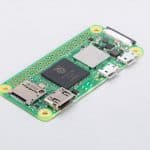
The Raspberry Pi Foundation released the first Raspberry Pi Zero nearly six years ago, and it proved so popular it was sold out for months. The fact it was priced at just $5 helped. It was followed up by the wireless-enabled Zero W for $10, and today the company launches a successor to that model.
Priced at $15, the new Raspberry Pi Zero 2 W uses the same Broadcom BCM2710A1 SoC die as the original Raspberry Pi 3. The quad-core 64-bit Arm Cortex-A53 CPU is clocked at 1GHz, delivering a 40 percent increase in single-threaded performance and 5x times more multi-threaded performance than the Zero W.
Recycle your old Raspberry Pi for free, and get money off a new one

I’ve bought quite a few Raspberry Pi over the years, upgrading each time a new model comes out. While I still use my Raspberry Pi 4 regularly, the older models are just gathering dust somewhere in the house.
OKdo has come up with a solution to this waste, partnering with Raspberry Pi and the Sony Technology Center to create OKdo Renew, an official scheme to renew old Raspberry Pi boards, and it's offering a financial incentive to get people to make use of it.
Raspberry Pi announces its next generation Power over Ethernet (PoE) HAT, but there is a catch
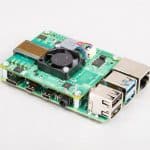
The latest product to join the Raspberry Pi family is a new Raspberry Pi PoE+ HAT. This version is more powerful, runs cooler and implements the 802.11at PoE+ standard which means it can deliver up to 25W of power.
The previous model will remain in production for a while, and but, like a lot of computer products, it’s affected by the current global semiconductor shortage.
Kodi 19 Matrix-based LibreELEC 10 BETA 1 Linux distro is here, but some Raspberry Pi devices are discontinued

Kodi is an excellent open source media player that provides the user with an immersive experience. While the software gets a bad reputation due to people using it for piracy, many folks only use it for legal media consumption. As more and more illegal Kodi add-on maintainers face legal trouble, and streaming services like Netflix and Disney+ remain competitively priced, fewer folks are seeking pirated content nowadays.
Not familiar with LibreELEC? Please know it is a Linux distribution that exists solely to run Kodi. It supports many hardware configurations, including traditional x86_64 for PC and some ARM devices like the Raspberry Pi 4. Following the release of Kodi 19 "Matrix," LibreELEC 10 BETA 1 finally becomes available for download. Sadly, support for the Raspberry Pi 0 and 1 is now discontinued.
Lexar launches PLAY microSDXC UHS-I Card for Nintendo Switch, Raspberry Pi, and more

Every once in a while, storage card manufacturers will release cards that are branded for gaming. People often wonder if there is anything different about these cards that can actually benefit gamers. The answer is largely no. A storage card that is designed for gaming is really just marketing hype. With that said, there is nothing wrong with these cards, although they can carry a premium price.
Today, Lexar launches the PLAY microSDXC UHS-I Card for Nintendo Switch and mobile gaming devices such as Android phones and tablets. It should be a great choice for a Raspberry Pi too. This card has a beautiful red color and comes in capacities up to 1TB. Believe it or not, despite its gaming branding it really isn't overpriced. In fact, you can score one of these cards for less than $22.
OpenMandriva Lx 4.2 Linux distribution now available for PC, Raspberry Pi, and more

As more and more computer users sour on Windows 10, they are increasingly turning to Linux as an alternative. They aren't just choosing traditional desktop Linux distributions like Ubuntu and Manjaro, but Chrome OS too. Yes, folks, Chromebooks run a Linux-based operating system. Make no mistake, Linux is a threat to Microsoft's desktop stranglehold.
Unfortunately, there are way too many Linux distributions nowadays, making it hard for curious Windows users to pick one. My advice to Linux newbies is to start with Ubuntu -- or a variant of it -- such as Mint or Pop!_OS. As you get more comfortable, you can then begin distro-hopping, starting a quest to find the best Linux-based operating system to meet your needs.
How to install Microsoft Visual Studio Code on Raspberry Pi
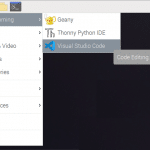
If you’re not familiar, Visual Studio Code (VS Code) is an open source C development environment from Microsoft. It is available for Windows, macOS and x64 Linux, and now you can run it on Raspberry Pi too.
The tool supports text editing, full web development (with JavaScript, TypeScript and Node.js) and git source code control. It supports extensions too (although not all of them), so you can further expand its capabilities.
Linux-based Raspberry Pi OS is secretly installing a Microsoft repo

Raspberry Pi owners are being warned that the officially supported Raspberry Pi OS installs a Microsoft repo without notification.
A recent update to the Debian Linux-based operating system -- previously known as Raspbian -- secretly installs a Microsoft apt repository that can call home to the company's servers. For anyone concerned about telemetry in general, or who is trying to avoid contact with the Windows maker, this is clearly not good news and raises questions about trust.
Raspberry Pi Pico is a $4 microcontroller for projects
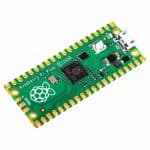
The Raspberry Pi itself is a powerful, low-cost device that can be used for a wide number of tasks, from playing games to learning how to program.
Today, the Raspberry Pi Foundation takes the wraps off Raspberry Pi Pico, a $4 microcontroller designed for physical computing projects. It can be used to control lights, buttons, sensors, motors, and even other microcontrollers.
Arch Linux-based Manjaro ARM 20.12 is here for Raspberry Pi 4, Pinebook, Odroid N2, and more

ARM is the future of desktop computing, and once again, Apple is leading the mainstream in this regard -- its new M1 Mac computers have been very well received. True, Microsoft had Windows on ARM first, but the reality is, consumers didn't care about that. Apple has made desktop computing on ARM popular.
With all of that said, Linux on ARM predates both Windows and macOS on ARM, and quite frankly, Linux is better equipped to scale to different architectures. The newest Raspberry Pi 4 computer, for instance, can run desktop Linux distros like a champ. And now, Arch Linux-based Manjaro ARM 20.12 is here for Raspberry Pi 4, Pinebook, Odroid N2, and more.
Give your Raspberry Pi 4 a performance boost with the new $5 Case Fan
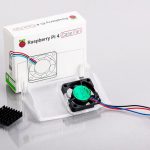
Some Raspberry Pi owners are more than happy to leave their devices uncased, but others prefer to add an enclosure just so it looks smarter.
If you’re a case owner and are concerned about heat building up inside, then the Raspberry Pi Foundation has you covered with a new, official Case Fan designed to keep things cool and help you squeeze more performance out of a Raspberry Pi 4.
© 1998-2025 BetaNews, Inc. All Rights Reserved. About Us - Privacy Policy - Cookie Policy - Sitemap.